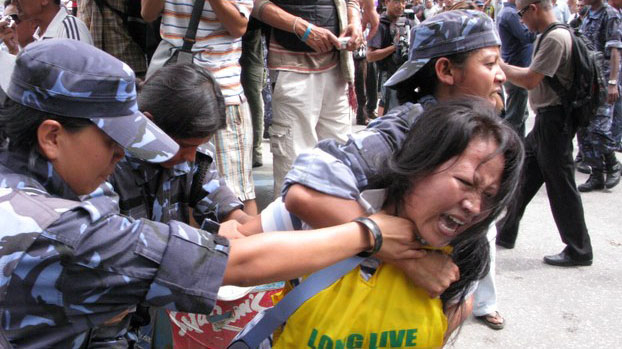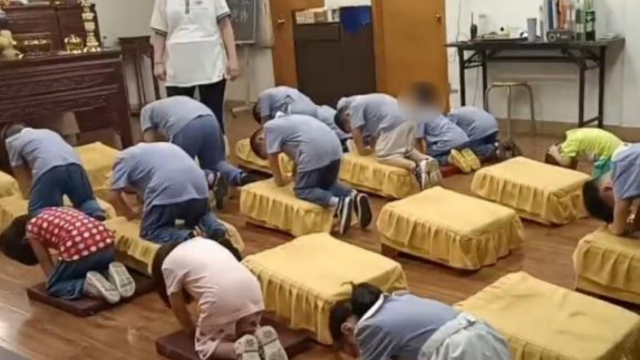
Nepal’s close political ties with China have left Tibetan refugees in the Himalayan country uncertain of their status, vulnerable to abuses of their rights, and restricted in their freedoms of movement and expression, rights groups said this week.
Nepal, which shares a long border with Tibet, is home to at least 20,000 exiles who began arriving in 1959 when a failed uprising against Chinese rule forced Tibet’s spiritual leader the Dalai Lama to take refuge in India’s Himalayan foothills.
Nepal is seen by China as a partner in its Belt and Road Initiative (BRI) to boost global trade through infrastructure investment, and the Kathmandu government has cited promises of millions of dollars of Chinese investment in restricting Tibetan activities in the country.
Tibetan refugees often lack proper documentation, recent arrivals face the threat of deportation back to China, and their freedom of expression has been suppressed – all conditions that have gotten worse as Kathmandu has deepened ties with Beijing, according to a report to the United Nations by two human rights groups.
Tibetan refugees who have arrived in Nepal since 1994 have no legal status and often face unequal treatment and restrictions on their rights, the Washington-based International Campaign for Tibet and the Paris-based International Federation for Human Rights told the UN in advance of a review of Nepal’s human rights record.
“While a previous system of Refugee Identification Cards (RCs) recognized Tibetans’ legal status to reside in Nepal, the Nepali government ceased issuing the RC in 1994. All human rights issues faced by Tibetans derive from this basic lack of legal recognition,” the report says.
The Nepalese government’s continued refusal to issue refugee identity papers to new Tibetan refugees arriving in Nepal is still a pressing problem, said a Tibetan named Sangpo working for the Human Rights Organization of Nepal (HURON).
“NGOs, the Tibetan Welfare Office, and the local office of the U.N. High Commissioner for Refugees have all appealed in vain to the government to issue new Refugee Identity Cards,” Sangpo said.
Without these cards, Tibetans are deprived of all rights to go to school or earn a living, even by setting up businesses on their own, he added.
Many lack documentation
According to a study conducted by HURON in 2017, at least 12,331 Tibetan refugees were living in Nepal without documentation, of whom 40 percent were under the age of 16 at the time of the study and were born in their host country.
As noncitizens of Nepal, Tibetans are denied the right to enroll in the country’s secondary schools and colleges and are barred from employment in the public sector, according to the report to the U.N.
In the private sector, “Tibetans are discriminated against, as employers often believe that they would face serious consequences for hiring Tibetans,” the rights groups wrote.
Tibetans fleeing oppression in their formerly independent homeland now ruled by China remain at constant risk of deportation, with unknown numbers of would-be refugees handed back by Nepal to Chinese border guards after trying to cross to safety, the report said.
Treaties recently signed between China and Nepal on criminal matters and a border management system are a cause for particular worry, Kai Mueller, head of ICT’s U.N. Advocacy Team, told RFA’s Tibetan Service in an interview this week.
“We are concerned that this may lead to a further erosion of Tibetans’ rights in Nepal—for example, if Nepalese authorities are sending Tibetans back into the hands of the Chinese authorities, which may lead to persecution and torture or imprisonment,” he said.
“I think there should be a very, very close monitoring by the international community with regard to what is going to unfold and further develop in Nepal,” Mueller said, adding, “Nepal is a country that aligns itself more and more with Beijing, which leads to a deterioration of rights in Nepal altogether.”
Freedom of expression restricted
Freedom of expression on matters related to China and Tibet has come under increasing pressure in Nepal, with Tibetans forbidden to call in public for greater freedoms in Tibet, to hold elections in their refugee communities, or to celebrate the birthdays of the Dalai Lama, the report said.
Washington-based Freedom House rated Nepal “partly free” in its 2020 annual index of world liberty, with a score of 51 out of a possible 100. China was meanwhile rated “not free” with a score of 10, while Tibet got an even lower ranking of just 1.
“The authorities [in Nepal] are especially rigorous in suppressing any signs of dissent among Tibetans, including manifestations of uniquely Tibetan religious belief and cultural identity,” the 2020 report noted.
Reported by Yangdon Demo and Tsewang Norbu for RFA’s Tibetan Service. Translated by Dorjee Damdul. Written in English by Richard Finney.
Source: Copyright © 1998-2016, RFA. Used with the permission of Radio Free Asia, 2025 M St. NW, Suite 300, Washington DC 20036. https://www.rfa.org.












